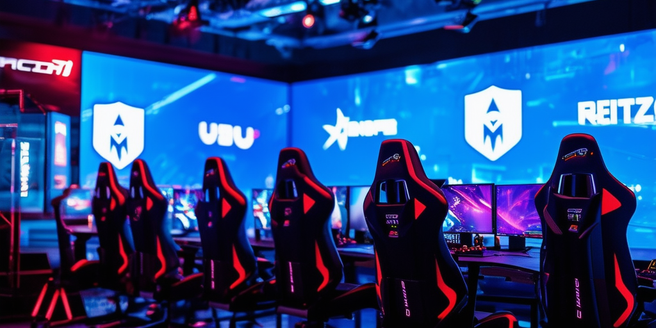
The Rise of Competitive Gaming
Over the past decade, competitive gaming has evolved from informal gatherings to highly organized events. The advent of online platforms has played a significant role in this transformation, allowing players from around the world to compete against each other in real-time. Major tournaments now offer substantial prize money, drawing in professional players and large audiences. With the increasing sophistication of game design and broadcasting technology, the stakes and spectacle have continually risen. This blend of technology and talent has created a vibrant and dynamic competitive scene. Streaming services such as Twitch have further popularized these events, providing a platform for gamers to showcase their skills to a global audience. As a result, competitive gaming has become a legitimate career path for many.
Popular Online Games for Competitions
Several online games have emerged as popular choices for competitive play. Titles like League of Legends, Dota 2, and Counter-Strike: Global Offensive are staples in the competitive gaming community. These games often have dedicated leagues and tournaments, drawing in large numbers of participants and viewers. The growth of esports has significantly contributed to the global interest in these titles. Additionally, newer games like Fortnite and Apex Legends have quickly gained a competitive following, thanks to their engaging gameplay and frequent updates. Many players invest significant time and effort to master these games, aiming to compete at the highest levels. The popularity of these games highlights the diverse interests within the competitive gaming scene.
Strategies to Excel in Online Tournaments
Success in online tournaments requires a combination of skill, strategy, and practice. Players must be well-versed in the mechanics and nuances of their chosen game. Understanding different strategies and being able to adapt quickly to opponents’ tactics is crucial. Regular practice and reviewing past matches can help players identify areas for improvement. Team coordination and communication also play a vital role, especially in team-based games. Consistent teamwork can often make the difference between victory and defeat. Utilizing tools such as replay analysis and coaching can provide a competitive edge. Moreover, staying up-to-date with game updates and patches is essential for staying competitive. Maintaining a positive mindset is also important for long-term success.
The Role of Esports in Online Gaming Competitions
Esports has become synonymous with competitive gaming, representing the professionalization of the field. Esports organizations sign players to contracts, provide training facilities, and develop marketing strategies to promote their teams. Major esports events are held in large arenas and broadcasted to millions of viewers worldwide. The involvement of sponsors and advertisers has brought significant financial investment into the industry, further legitimizing esports as a professional sport. With increased visibility, even mainstream media outlets are covering major esports tournaments. This has created more opportunities for players to pursue gaming as a career. Universities and colleges are also beginning to offer scholarships for talented esports players. As a result, the growth of esports shows no signs of slowing down any time soon.
Future Trends in Online Gaming Competitions
The future of online gaming competitions is likely to be shaped by advancements in technology and changes in player preferences. Virtual reality (VR) and augmented reality (AR) could introduce new dimensions to competitive gaming, making experiences more immersive. Additionally, advancements in artificial intelligence (AI) could lead to more sophisticated game mechanics and opponent strategies. The future of these competitions may also be influenced by the integration of blockchain technology, offering more secure transactions and in-game assets. Social media platforms may also play a significant role in the evolution of online gaming competitions, enhancing player engagement and audience reach. The rise of mobile gaming is also expected to influence competitive gaming, with mobile-friendly titles becoming more prevalent in tournaments. As the industry continues to grow, new trends will undoubtedly emerge, further transforming the landscape.
